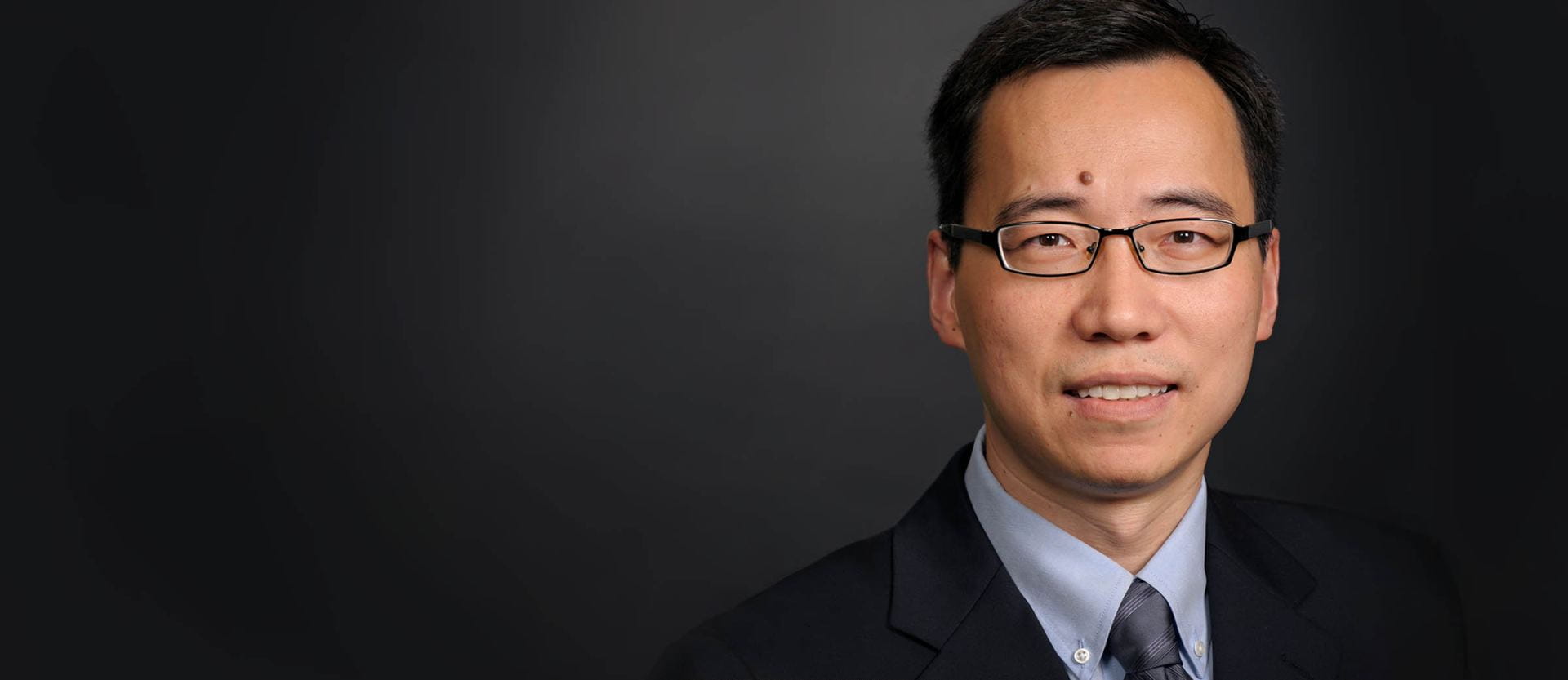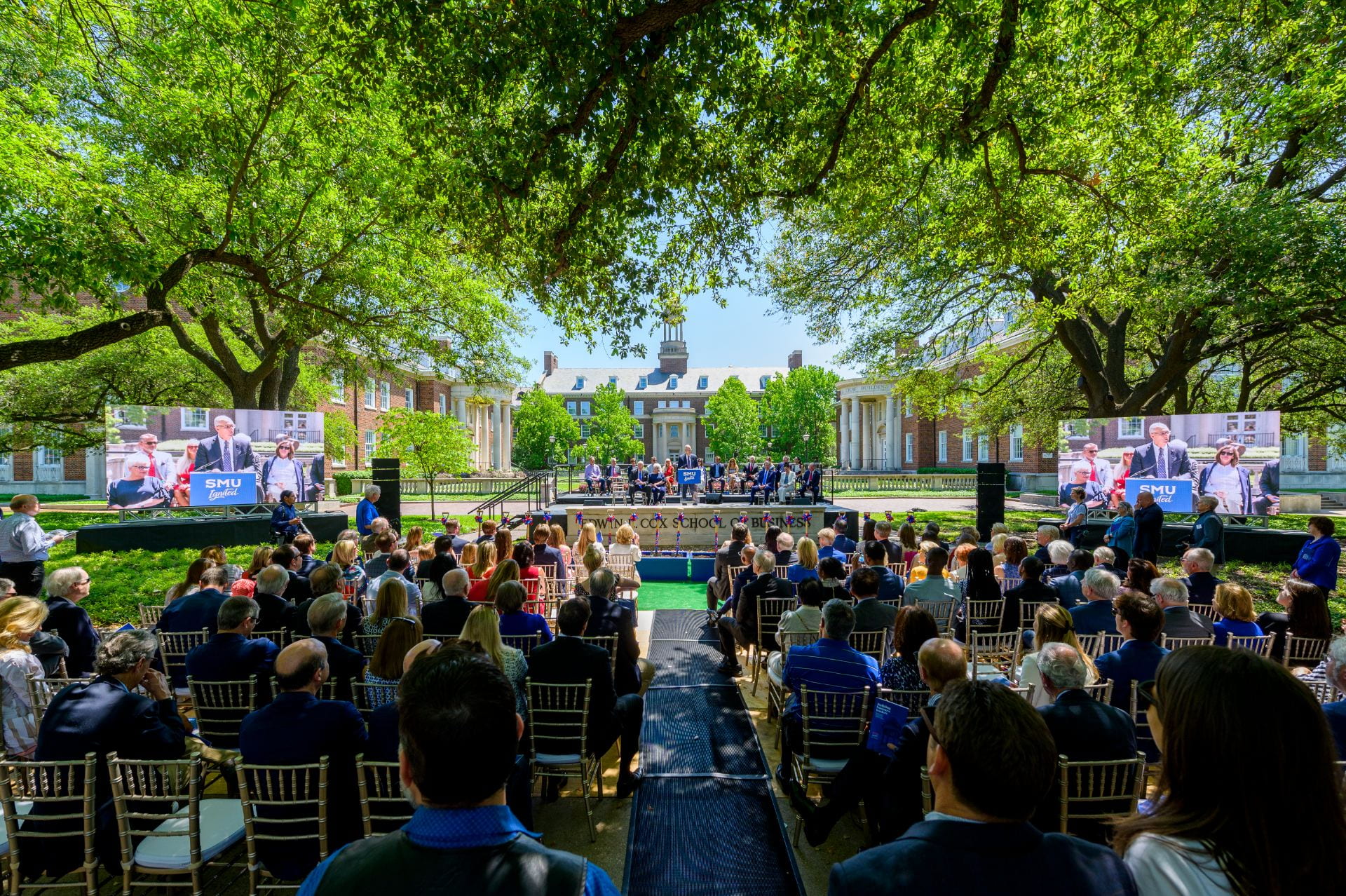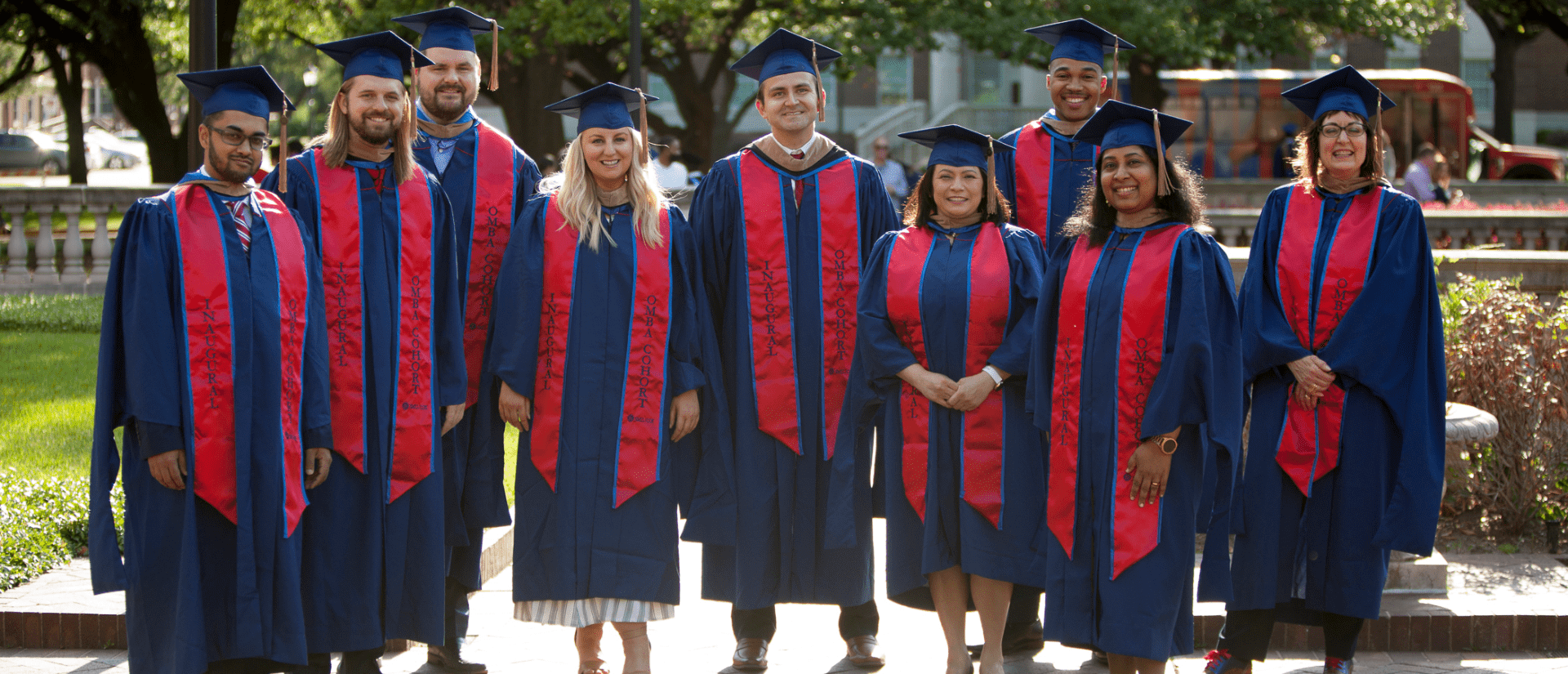The Cox School of Business aspires to be known internationally as an expert in leadership. A new faculty member has joined the School’s efforts to elevate its leadership expertise. After 12 years at Arizona State University’s W. P. Carey School of Business, professor Zhen Zhang became part of the Cox School faculty this fall as the O. Paul Corley Distinguished Chair in Organizational Behavior and Administration — the School’s oldest endowed chair reserved for top scholars.
Zhang’s extensive research productivity, with in-depth knowledge focused on leadership dynamics and advanced analytics, has made him “one of the top scholars in his career stage,” says management and organizations department chair Marcus Butts. “With the addition of Zhang, we hope this allows us to expand our expertise and continue to grow our footprint as we aspire to be known as one of the world’s top management and leadership research faculties.”
A robust research faculty enhances the University’s research profile, a metric used by several ranking agencies, says senior associate dean and Herman W. Lay Professor of Marketing Bill Dillon. “Strong research faculty know the extant literature in the field and are in the best position to expose students to cutting-edge techniques and frameworks,” Dillon says. “In addition, internally, strong research faculty establish the research culture of a school by serving as exemplars as well as collaborating with junior faculty. We attract top scholars like Dr. Zhang because of the Cox culture.”
The Right Fit
Zhang, whose résumé includes 74 conference presentations and 42 peer-reviewed journal publications, is part of a series of “strong recent hires” helping create a collaborative climate for research and thought leadership within Cox, Butts says.
Zhang’s background also aligns with the School’s new NextGen Cox Curriculum, which includes an increased concentration on three key pillars: leadership, analytics and experiential learning. About 85% of Zhang’s research focuses on leadership, and he’s well-versed in data analytics, having published several studies focusing on advancing statistical techniques.
At Cox, Zhang will build upon his previous foundational research regarding the role that behavioral genetics plays in leadership. In his early research, Zhang made an intriguing discovery about factors that make a leader. He found that, regardless of sex, a person’s chance of becoming a leader in their profession is about 30% influenced by genetics and 70% influenced by opportunities, challenges and work-related learning experiences. Through continued research and collaboration opportunities with Cox colleagues, Zhang hopes to pinpoint the factors that develop successful, effective leaders.
A Global Perspective
Zhang’s global consulting experience also allows him to bring empirical examples into the classroom — invaluable insight for Cox students. Zhang’s consulting work and research projects are always intertwined. This practice enables him to share in real time what difficulties companies are facing, illustrate how current practices are lacking and discuss what better decisions could motivate employees and enhance teamwork.
Zhang, who grew up in China and earned his bachelor’s and master’s degrees from Beijing’s Tsinghua University, has strong connections within East Asian countries. He’s also served as a consultant for companies ranging from a German airline to China-based pharmaceutical companies.
“This global connection, I believe, will be helpful for both classroom discussions and research collaboration, allowing me to tap into the great minds in different countries and cultures and to teach students cutting-edge knowledge from researchers across the globe,” Zhang says.
Beyond the Numbers
Although organizational behavior has been part of the standard business school curriculum for decades, Zhang believes the field has increasing importance in modern business and leadership practices.
Zhang uses this analogy to describe the field’s importance: Fundamental classes such as finance, accounting, operations and marketing are the skeleton of any business. “You need to have the bones of the human body in order to survive,” he says. “However, to only have the bones is not enough.” Interpersonal — or “people” — skills serve as a business’ muscles, flesh and blood, helping create well-rounded, highly functioning leaders. “You are not a computer,” Zhang says. “You need to have that human touch to bring out creativity, empathy and new perspectives into decision-making and day-to-day activities at work.”
With an accounting background, he initially became interested in organizational behavior during an undergraduate internship with a former Big Five accounting firm in the early 2000s. In his time with the firm, Zhang noticed that some of his teammates lacked interpersonal skills, despite having a desirable, competitive skillset. “That undermined their potential for career advancement,” he says. “The internship really opened my eyes in terms of seeing something beyond the numbers, beyond the financial statements that were the focus of my accounting training. It’s actually psychology, not technical skills, that determines a person’s well-being at work.”
This experience shifted Zhang’s focus toward organizational behavior and human resource management and also informed his research interests and teaching principles.
“I emphasize to students that a business is about people,” he says. “It’s not only about financial reports or operational procedures or economic decisions. People’s psychology is crucial, and their motivation and capabilities are the focus of my class. As a leader, you’ll need to get your job done on time, pay close attention to interpersonal relationships and also be prepared to lead changes.”
Enhancing Society
Beyond the classroom and corporate connections, Zhang sees focusing on organizational behavior as potentially having a positive impact on society as a whole.
“We need to teach students, who are future generations of leaders, to understand the application of knowledge — their ability to apply newly created knowledge and insights from faculty research to their own work,” Zhang says. “This knowledge application, hopefully, can have a positive impact on their business decisions and on their employees’ well-being.”
Learn more about SMU Cox School of Business faculty and the School’s NextGen Cox Curriculum.














